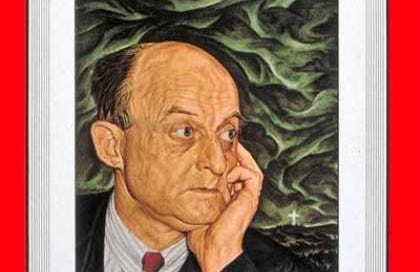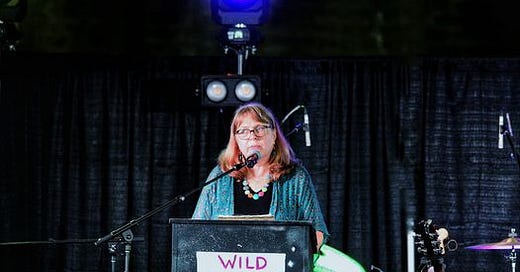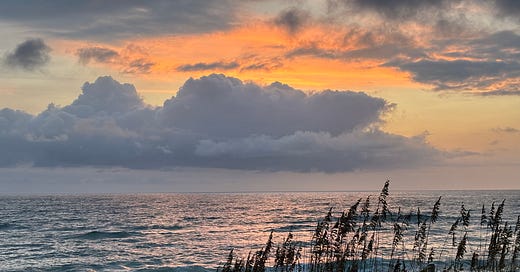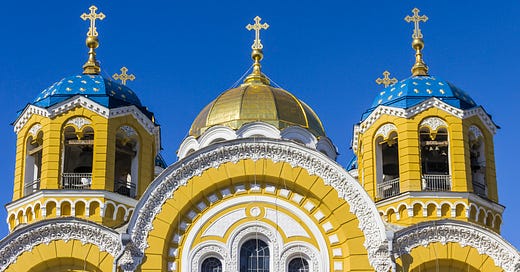

Discover more from The Cottage
Why We Must Talk About Faith and Politics...Especially in Church
A plea for religion and politics right now
Several months ago, I was talking with Tim Whitaker, the creator of The New Evangelicals, an online and social media community. We were chatting about faith and politics. He confessed he felt conflicted about his love for America and his deepening awareness of the nation’s long litany of moral failures.
As he spoke of this tension, I heard echoes of a comment made long ago by Reinhold Niebuhr: “Our age is involved in irony because so many dreams of our nation have been so cruelly refuted by history.”
And so, listening to my friend and inwardly ruminating on that classic book, I finally asked Tim, “Have you ever read The Irony of American History by Reinhold Niebuhr?”
“No,” he responded tentatively, “Who’s Reinhold Niebuhr?
I almost fell off my chair.
It never occurred to me that my thoughtful, intellectually precocious friend had never even heard of the Niebuhr brothers — and their brilliant post-war analyses of American identity, political life, and theological ambiguity would be a complete and utter blank.
* * * * * *
Tim can’t be dismissed for a lack of interest or learning. He was born in 1988 to evangelical parents; he was homeschooled, attended a private Christian school, and went to an evangelical college for two years. He was a music minister — and worked in a large evangelical church, he calls it “the belly of the beast.” He’s insatiably curious and reads a wide range of books and publications. Now, he’s a deconstructing evangelical, one of a myriad of young adults who grew up within evangelicalism and, eventually, asked too many questions to maintain their childhood faith.
For Tim, his theological journey away from evangelicalism coincided with the rise of Donald Trump. He just couldn’t put the pieces together: How could the community that raised him to never lie, practice sexual integrity, and take the teachings of Jesus literally support a man like Trump — even to the point of near worship — to be president?
It is a good question. And it still is.
Tim hasn’t been alone in asking. I’ve now got a surprising number of friends with similar stories — all born in the 1980s or early 1990s, all grew up in evangelical churches, primarily mega-churches, many were homeschooled, and all were influenced by the politics of the religious right.
Sure, they wondered about theology. They had questions about biblical literalism and the end times. But they were driven away by politics — the politics of Jerry Falwell and Pat Robertson, of abortion, and, eventually, Donald Trump.
It is the story of a generation.
* * * * * *
And it isn’t the story of most people in mainline congregations. Most older American adults.
At the same time evangelicals embraced politics, mainliners walked away from their traditional engagement of faith and politics. And they did so for a particularly misguided reason.
By 1980, when the Religious Right exploded onto the scene of American politics, mainline denominations were about a decade into what would become their historic decline.
The initial loss of mainline status and decline of church membership happened in conjunction with the expansion of Civil Rights, environmentalism, the peace movement, and feminism. A rift developed between a largely-liberal clergy and largely-centrist/conventional churchgoers.
Pundits and some scholars said that radical clerical politics had caused the decline.
There was a certain kind of opportunism behind this thesis — many of those blaming politics for the decline were themselves deeply involved in conservative politics and wanted to split the mainline (which was then culturally influential) on these issues (and redirect mainline money to right-wing political causes). Certainly, there were churchgoers upset with the changes brought about in those years — especially with the Civil Rights Movement. And some people did leave. Congregations began thinning and greying. Yet, some powerful people pressed the issue to their own advantage (and have been ever since).
Not surprisingly, a crisis of confidence set in among mainliners. Maybe we were wrong. Maybe we didn’t do the right things when it came to politics.
Many historians (including me) have now argued that the decline was caused by a set of unexpected demographic and social changes. But then, many mainline leaders weren’t in the mood for nuance or multiple causes. They either embraced politics-causes-decline thesis or continued in a familiar pattern of faith and politics that muted the “faith” part. One response led to quietism; the other toward denial. Both responses proved disastrous. And they were uniquely inadequate to understand or address the deeper concerns that would overtake their churches in the coming decades.
But the old thesis stuck: Politics caused mainline decline.
A corollary convention emerged: Since politics caused the decline, we can’t talk about politics in church.
At the time, few examined the proposition and even fewer questioned the pastoral “wisdom” of political avoidance.
Yet, nobody seemed to notice that evangelical were talking about politics. All the time. Everywhere. In sermons, at political conventions, at church gatherings.
And evangelical churches were growing like topsy, attracting millions of new adherents. Including Tim Whitaker’s parents.
* * * * * * *
I always liked religion and politics. Religion and politics made my childhood Methodist church interesting. The grown-ups got mad when young preachers from places like Yale came in and told them that Dr. King was right and that we were killing people in a jungle in a place called Vietnam. Mostly, adults seemed polite and restrained in that old world. But you could count on a passionate preacher in a formal robe creating a family argument over Sunday lunch.
Even in my working-class, non-college educated neighborhood, we heard sermons quoting writers whose work I’d later read for myself — Martin Luther King, Jr., Daniel Berrigan, Dorothy Day, the Niebuhr brothers, William Sloan Coffin, Thomas Merton, and Harvey Cox. Indeed, people talked about the Niebuhrs so much that I thought they lived in our neighborhood. Theologians were among the first intellectuals I knew (novelists would also be on this list).
Maybe politics caused mainline decline. But it also did something else. Talking about politics in church opened our congregations to a world that would have otherwise been well beyond our experience — the world of university and seminary classrooms where men and women argued about ideas that mattered regarding community, justice, and equality. In working-class Baltimore, we were the trickle-down mainline recipients of the great discussions of the day.
We inherited a long tradition of complexity and conflict in Christianity: What should be the relationship between, as Augustine put it, the City of God and the City of Man? What did Jerusalem have to do with Athens? What is the Kingdom of God? Who counts as fully human in that holy commonwealth? How do we care for our neighbors? Will the poor always be with us? Can a Christian go to war? What is our moral responsibility for the world?
Welcome to my childhood church. Sure, there were animal crackers and juice. Little gold stars for memorizing books of the Bible and Holy Land maps. We talked about all these things, too — as was appropriate at each age level. But we learned the questions.
And there was, in the hallway outside of the Sunday school classroom, a framed TIME magazine cover, even then yellowing with age, of Reinhold Niebuhr, a kind of Protestant saint of the questions.
* * * * * *
Who’s Reinhold Niebuhr?
Tim had never heard of Reinhold Niebuhr.
That happened, at least in part, because we stopped talking about religion and politics.
It isn’t that Reinhold Niebuhr had all the answers. He didn’t. I now disagree with much of what he wrote. I draw from a much wider range of theo-political options.
But Niebuhr represented a tradition — part of that long Christian argument that shaped the imagination of an elementary school girl in a Methodist church in Baltimore. From him, and from those others, I learned that it was good to argue about faith and politics in church. Indeed, it was our birthright.
Ultimately, that’s how Christianity defines politics — a long argument about the life of God and civic life, about the relationship between Theos and polis. It isn’t partisanship or dirty tricks or the horserace or polls or a party or a single issue. Those aren’t politics, even if contemporary people are confused on this point.
From a theological perspective, politics is the argument about the nature of community, who counts in community, and our moral responsibility for community. It is an old argument. It existed long before Jesus, long before Rome. It runs through the Hebrew scriptures. It shaped ancient societies. These are questions are the heart of human existence, these theological-political questions.
No society avoids them. Except, of course, to their peril.
Politics doesn’t cause a community to decline. Avoiding politics might. And the malevolent use of politics for the ends of a few certainly does.
And that’s the difference between my childhood world and Tim’s. The Methodist church invited everybody (as far as they understood “everybody” — and trust me, that was part of the discussion) to the great argument. We were shaped by being part of the long conversation.
But evangelicalism of the 1980s? There was no argument. There was only the right answer, the right view, the right vote.
Tim was taught that there was only one way. Jesus’ way. The Bible’s way. Pastor’s way. And, eventually, Donald Trump’s way.
Everyone else was going to hell. The long argument with its conflicting possibilities, its irony and tension, its brilliant justice and blatant exclusion, was silenced — and demonized.
* * * * * * *
Tim never heard the argument in his church. Or his homeschool or private one or religious college. There was only conformity, never complexity.
And certainly no irony in American history.
This is why those of us left in the old mainline need to wake up. We’ve been busy arguing among ourselves — and too many either forgot — or simply assumed — that we all carried the memory of the long argument. We battled within for the scraps of our declining denominations and largely (but not entirely) silenced our public voices. Or we simply carried on in the old ways through increasingly irrelevant denominational offices and strategies to shift votes in Congress.
But we didn’t teach the long tradition. We didn’t proclaim it. We didn’t school one another in how to have the argument. We simply went along with the crowd — imagining politics to be a partisan gladiator contest broadcast on FOX or MSNBC, with them and us, losers and winners. Thumbs up; thumbs down.
We did this to ourselves, this silencing. Why? Because we were losing members? Because we were afraid? We severed the thread. Because we don’t talk about religion and politics in our church. Because we believe a thesis by people who sought to undo our denominations?
However it happened, we left Tim alone to fend for himself. He never heard that there were different possibilities. He didn’t know an entire world of faith and politics ever existed beyond the boundaries of the Religious Right. Beyond Donald Trump.
How will they hear without a preacher?
I’m so sorry, Tim. I thought you knew. Maybe by theological osmosis.
I guess it doesn’t work that way.
* * * * * * *
If we fear or hate this present moment, if we’re tempted to blame it on evangelicals (who do, indeed, bear fair share of the blame), the rest of us might spend just a moment looking in the mirror. What does it say when we are silent on the great issues of the day? When we don’t recognize the deep crises around us? When we only want to talk about life after death when life during life is so frightening and hard?
What does it mean to be silent, to avoid what matters? I think it means we’ve given up.
But we must talk about religion and politics now. The long argument has largely been left out of the contemporary furor. The world is quickly coming to the conclusion that all Christians are Christian nationalists and authoritarians and that the only alternative is a society devoid of Christian faith - or any faith - altogether.
A pox on both of these houses, I say.
Let’s renew the long argument, with its complexity, ambiguity, tension, and conflicting options — in all its gloriously transformative messiness. Let’s remind one another that we are heirs of great traditions, remarkable theologians and activists who were, at the same time, both saintly and sinful. And they left us so many options — realism, irony, diversity, liberation, repentance, prophetic witness, justice, non-violence, peace, resistance, contemplative activism, care for the commons.
Sometimes the only match for the messiness of the world is the messiness of the possibilities gifted us by our ancestors — and the messy creativity of living the argument in and for our own times.
Silence is not an option. There is too much to lose.
Please talk. Please. We might be surprised who is listening.
INSPIRATION
We have memorized America,
how it was born and who we have been and where.
In ceremonies and silence we say the words,
telling the stories, singing the old songs.
We like the places they take us. Mostly we do.
The great and all the anonymous dead are there.
We know the sound of all the sounds we brought.
The rich taste of it is on our tongues.
But where are we going to be, and why, and who?
The disenfranchised dead want to know.
We mean to be the people we meant to be,
to keep on going where we meant to go.
But how do we fashion the future? Who can say how
except in the minds of those who will call it Now?
The children. The children. And how does our garden grow?
With waving hands—oh, rarely in a row—
and flowering faces. And brambles, that we can no longer allow.
Who were many people coming together
cannot become one people falling apart.
Who dreamed for every child an even chance
cannot let luck alone turn doorknobs or not.
Whose law was never so much of the hand as the head
cannot let chaos make its way to the heart.
Who have seen learning struggle from teacher to child
cannot let ignorance spread itself like rot.
We know what we have done and what we have said,
and how we have grown, degree by slow degree,
believing ourselves toward all we have tried to become—
just and compassionate, equal, able, and free.
All this in the hands of children, eyes already set
on a land we never can visit—it isn’t there yet—
but looking through their eyes, we can see
what our long gift to them may come to be.
If we can truly remember, they will not forget.
— Miller Williams, “On History and Hope”
Please support The Cottage if you appreciate this post and are able to do so. No institution, corporation, or denomination sponsors this work. There are no ads and no list selling. This is work supported by a small portion of Cottage readers so that many, many more people will benefit from the questions and ideas raised here.
Click on the button below for more information and subscription options. THANK YOU.
Those who believe that politics and religion do not mix, understand neither.
— Albert Einstein

















Excellent post. My history is different from yours. I'm older and from a different background. My family was Dutch Christian Reformed and German Missouri Synod immigrants who warred over Luther and Calvin without taking time to study either because they were obsessed with fear of the surrounding non-Dutch, non-German culture. Fallwell, Dobson and their reductionist ilk played well with the desire to avoid a changing world. I dropped out of that when I went to college. To break out of my perceived walls, I studied far eastern history and dabbled in theology (read Niebuhr then). My wife and I returned for a few years when our children were young, but left when we couldn't endure the anti-feminist, anti-gay, unforgiving and judgmental atmosphere. In the last few years I have found a home with a progressive Episcopal church that freely discusses political issues without taking political stands. I feel an awakening as my church reaches out to welcome LGBTQ+, house the homeless, oppose gun violence, and fight systemic racism and souless capitalism. I hope this awakening is the future.
This is a great piece of writing. I took the Faith and Politics class and have been thinking I should go back and write an outline of the tapes and conversations. But you just did it for me!! I’m most grateful. I’m keeping this and sharing it with clergy friends.